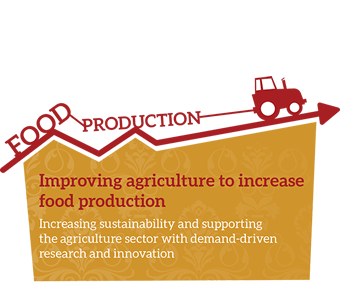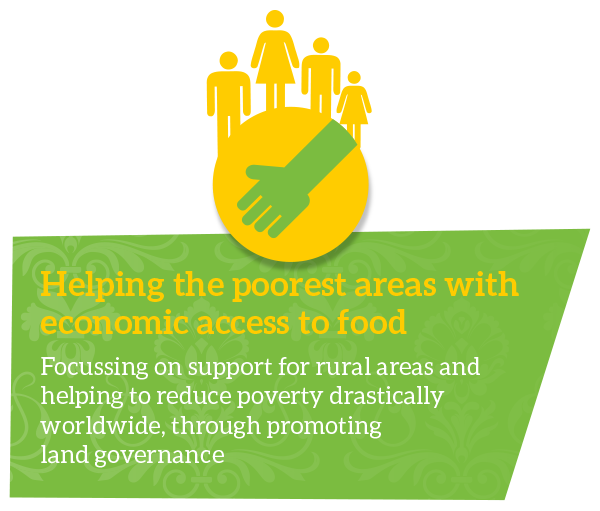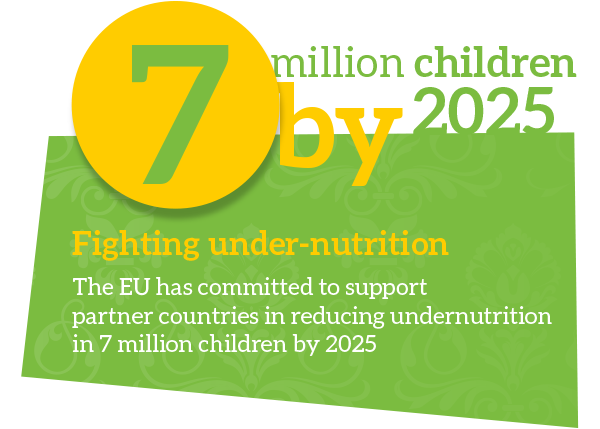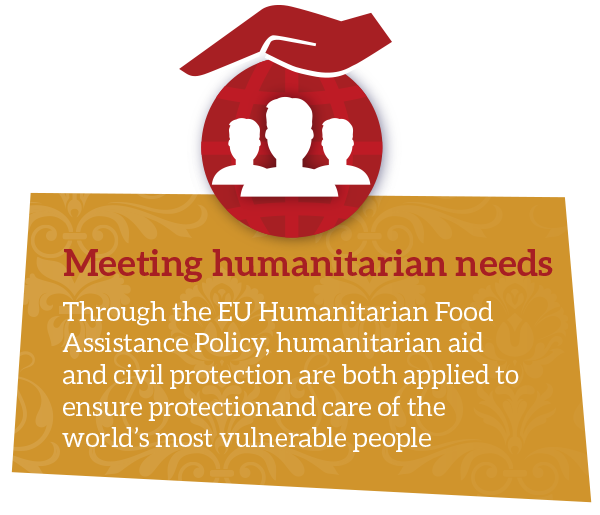70% of the world's poor live in rural areas where agriculture, including livestock, aquaculture and fisheries, are the main source of income and employment. 842 million people, or around one in eight people in the world, are suffering from hunger and more than 3 million children die every year due to under-nutrition.
The EU has a leading role in addressing hunger and currently is the biggest development actor in food security, providing significant support, both financial and political.
Here are the many ways in which the EU actively supports and provides for people suffering from food and nutrition insecurity:

Agriculture must become more sustainable, while having to feed an increasing number of people. Support for the sector therefore has been geared towards sustainable agricultural and fishery practices, and intensification approaches are central to reduce exposure to climate change, environmental degradation, food crises, and undernutrition. Significant support is provided for demand-driven research and innovation, with clear benefits for small-scale farmers, including strengthened adaptation to climate change.

Agriculture, in particular small-scale farming, is the key economic activity for a large number people in developing countries. As a consequence, focussing support for smallholders and for rural areas can help to reduce poverty drastically. The main areas of interventions include improved policies and strategies at national and continental level, in particular by promoting land governance aimed at securing access to land.

Since 2008, increasing evidence of the cost linked to child undernutrition sparked reconsideration around the importance of nutrition on the global development agenda. The EU has been at the forefront: in 2012 the EU took an unprecedented commitment to support partner countries in reducing undernutrition of 7 million children by 2025.

The European Union is one of the world's leading donors of humanitarian food assistance. The EU Humanitarian Food Assistance Policy aims to ensure the availability, access and consumption of safe and nutritious food for the world’s most vulnerable people; those affected by natural disasters and man-made crises, by averting excessive mortality, emergency rates of acute undernutrition, or detrimental coping mechanisms. The two main instruments for disaster response both inside and outside the EU are humanitarian aid and civil protection.
The EU takes a broad approach to meeting the needs of vulnerable and food insecure people. Increasingly assistance is provided in the form of a cash transfer, which allows people to meet their basic needs, including food, with dignity.
Following the UN Conference on Sustainable Development; "Rio+20", held in Rio de Janeiro in June 2012, in which the EU is actively engaged in the reform of the UN institutions responsible for sustainable development and environmental sustainability. The EU will also contribute to the development of the Sustainable Development Goals, a new international framework that will succeed the Millennium Development Goals. The framework will be based on all three dimensions of sustainable development: social, environmental and economic.


